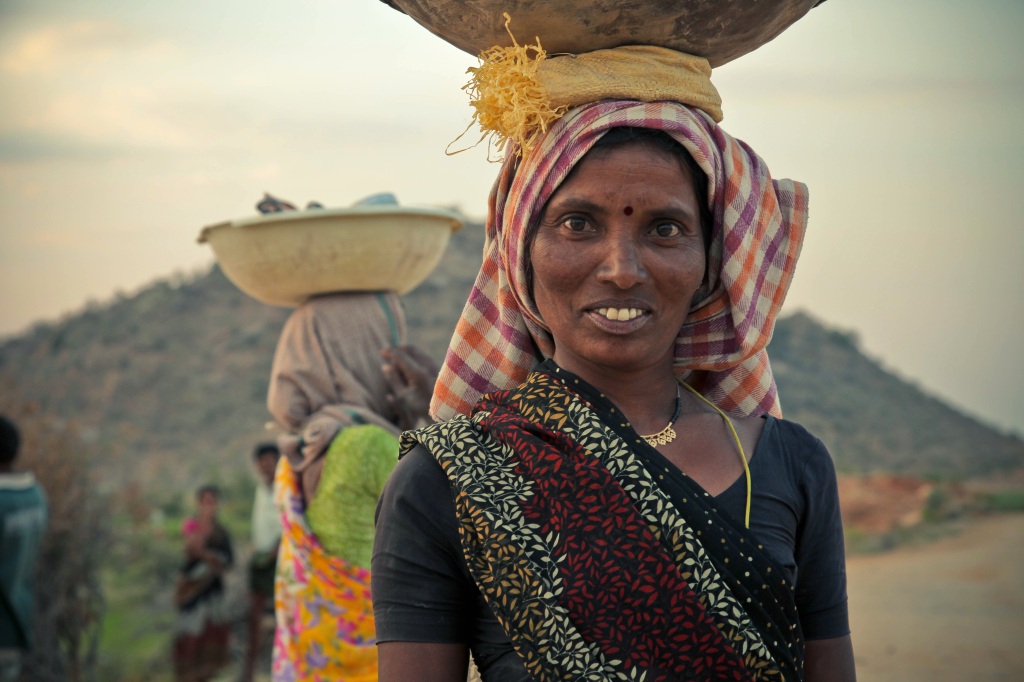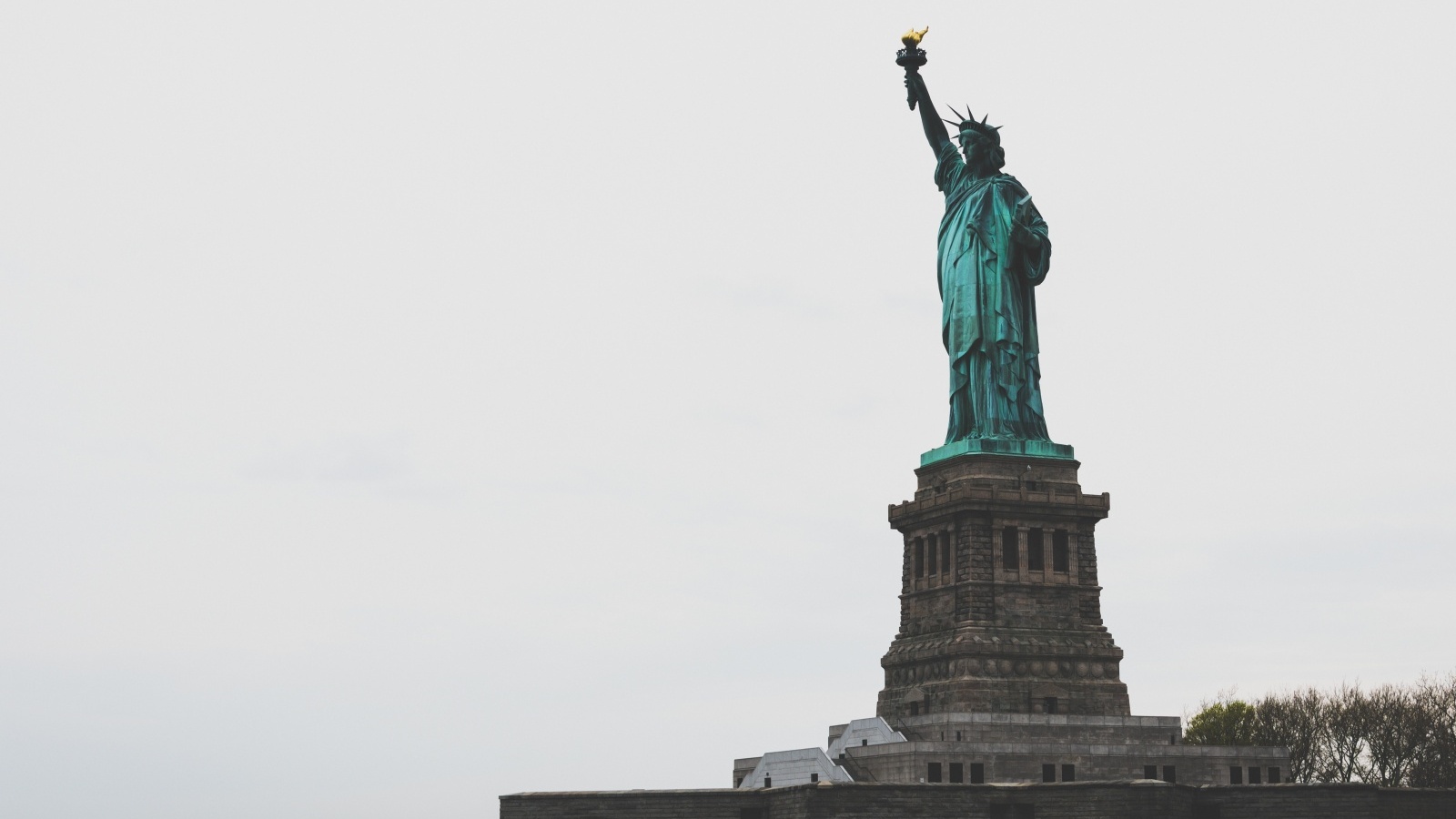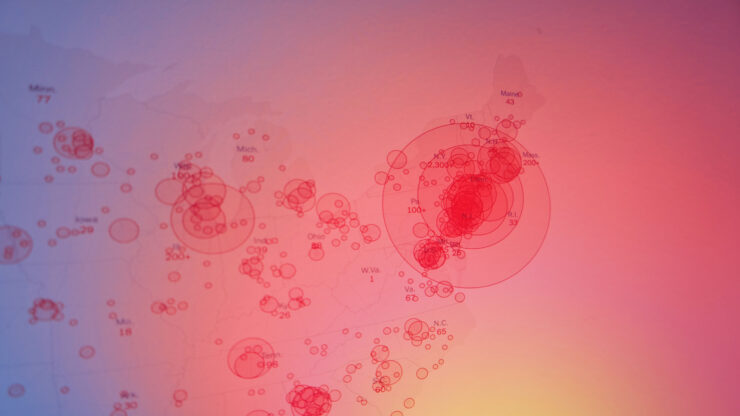Preface
I personally don’t like conflict. I score as high as possible as the “Avoider” in the conflict test that helps you understand your default way of handling situations. That means I don’t naturally say much about controversial issues unless I feel strongly convicted by Scripture to speak up. Even then, I much prefer to engage issues through personal discussions rooted in mutual respect.
Contact us if you’d like to talk.
This situation is a little different for me because I feel uniquely responsible for communicating about the issue as a leader of an organization serving the spiritual and physical needs of resettled refugee populations. I am not trying to make a political statement as much as I want to encourage the church to hear from God’s word as we daily seek to apply His truth to our lives. All that to be said, here are some thoughts I invite you to consider in a spirit of charity and grace.
Seven Thoughts
1. God is in complete control of everything and determines the movement of peoples (Acts 17.26-27). This gives us peace about God’s plan to receive the glory He deserves, but it does not remove our responsibility to be the Church on mission, pushing back darkness in our world. No policy can replace our responsibility as individuals to personally obey the teachings of Jesus and follow Him.
2. The role of the government is to protect its people from harm (
1 – Reference at end) and doing so through careful screening measures of refugees and immigrants is a wise safety mechanism. I’m encouraged that to this date, the refugee resettlement program (different than other types of immigration) has proven pretty effective at keeping out people who wish us harm. Unfortunately, in our fallen world, nothing will be perfect and it makes sense to continually be improving our processes to ensure optimal safety.

3. The executive order aimed at improving the process, unfortunately, created some unintended consequences like separating families and damaging US citizen’s ability to minister to the lost and suffering people in the Middle East. We should be praying for separated families and those serving abroad during this difficult season. Also, we should be flexible to endure the pains that come with improvement measures for the well-being of our country.
4. Refugees are real people with names, families, hopes and dreams. We are all made in the image of God (Genesis 1.27) and are therefore equally valuable. The difference between me and them is the circumstance by God’s divine will into which we were born. I have many good friends who are refugees resettled here in Dallas. We share meals, discuss our beliefs about God and I hear their desperation for their children to have better opportunities than they had. Honestly, they probably show me more hospitality than some of my American friends even out of their poverty. That’s really not my point though so as one of my mentors often says, “That’s too convicting, let’s move on.”
No policy can replace our responsibility as individuals to personally obey the teachings of Jesus and follow Him.
5. Refugees have experienced some of the deepest tragedy of any people currently on our planet. It takes just one encounter with a refugee willing to share the horrors they’ve witnessed to completely break your heart. I get a pit in my stomach just thinking about having a loved one killed in front of me or being so scared that I left everything I ever owned to live in a tent so that I might be safe. As a people who have been shown love by Jesus, we should be moved to show love and compassion to others (1 John 4.19). Just think of the story Jesus told about the good Samaritan in response to being asked, “What shall I do to inherit eternal life?” (Luke 10.25-37). We can’t afford to take this lightly.
6. We can’t let the complexity of a situation prevent us from responding to brokenness in our world. Our challenge in this context is to blend compassion with security. At times this may involve some risk, never unmeasured (Luke 14.28) or foolish risk, but we know that suffering to do good is a blessing (1 Peter 3:13-15). We count the cost. Ultimately I believe embracing this tension of compassion and safety will determine our collective flourishing.
(1)(2)
7. As believers, we are called to love the “least of these” (Matthew 25:44-45). We should be compelled to action and prayer at least on some level for the worldwide
65 million displaced people (21 million of which are refugees). Globally speaking, I would suggest displaced people are some of the most marginalized and desperate we could find. Other marginalized groups to intercede for would be those trapped in modern day slavery (
20 – 45 million people), those living in extreme poverty (
10% of the world living on less than $2/day) and those lacking access to basic healthcare (
at least 400 million people) among other injustices.

To the Ends of the Earth
The Bible says that God is redeeming people from every tribe, language, and nation in the world (Revelation 7.9). He has sent us out as ministers of reconciliation (2 Corinthians 5.11-21) to the ends of the earth to restore the lost world’s relationship with their creator. Many of the globally marginalized share in what I believe is the most desperate state of all. That being the fact that
42% of the world still tragically lacks a fundamental access to the saving Gospel message of Jesus Christ. They will live and die without ever hearing about Him. Many or those people have been
coming to the US as refugees.
As an organization, we saw an opportunity and committed to reaching that population with the Gospel in hopes that spiritual transformation would multiply back to their home countries to provide healing there as well. We don’t know exactly what will happen with immigration next in the US but as people are deciding what to do during the executive order, we make our single political appeal at this time to as safely as possible resume refugee resettlement in the United States primarily for the sake of lost people hearing the Gospel. Whether here or there we know everyone needs Jesus and this seems to be a good opportunity to tell people about Him.

I completely understand a position that disagrees with refugee resettlement. I agree that the best solution is for an end to the original conflict or resettlement in the country they initially fled to. We should be praying and acting fervently towards those ends as well. Unfortunately, those issues are at least as complex as the issue we’ve unpacked here in this discussion.
If at some point unreached people groups stop immigrating to the United States, the only thing that will change for us is the fact that more from the church will need to go to them. I believe we are under a clear command in Scripture to “GO” (Matt 28.18-20). Right now it’s far easier for me to “go” across the street but I would challenge us to be willing to “go” across the world if the Lord leads. For some of us, God may already be inviting us to go. If you disagree with refugee resettlement, I would only ask that you join us instead in the “going” effort of taking the Gospel overseas to those without access.
A summary of our invitation: To help us make the world look more like heaven and less like hell (3) in the best way you know how to do that today through the power of the Holy Spirit. Read Scripture, pray and respond in action.
“By this we know love, that he laid down his life for us, and we ought to lay down our lives for the brothers. But if anyone has the world’s goods and sees his brother in need, yet closes his heart against him, how does God’s love abide in him? Little children, let us not love in word or talk but in deed and in truth.” – 1 John 3.16-18
(1) Concepts developed from Russell Moore of SBC’s letter to President Trump
(2)Concepts developed from point 5 in this article by Courney Christenson from Preemptive Love
(3) Adapted from a trainer’s self-described job title at a disciple-making training
These articles also helped shape my view on the recent executive order.
Our Political Climate and the Credibility of the Church by Matt Chandler
How to respond to the Refugee Crisis by David Platt
SEEK the Peace Advocacy Page










